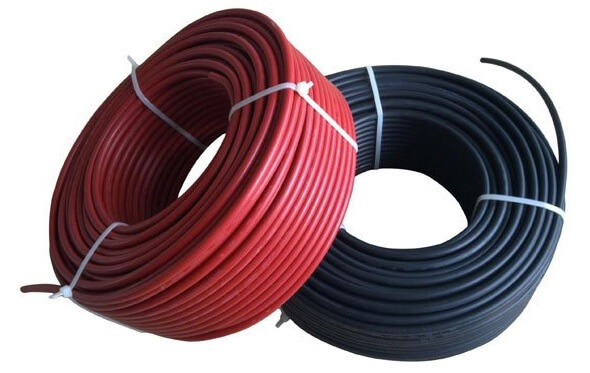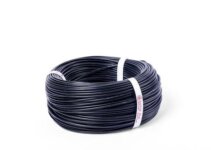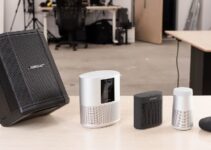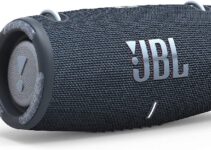Cables are very important because we use them for electrical connections among other purposes. the Nigerian electric cable market is humongous. It is no secret that the cables made in Nigeria are of very high quality.
Several electrical projects, both major and minor, are constantly carried out within the Nigerian space by both private and public bodies. These projects require the use of electrical cables. Because of this demand, the cost of electrical cables continues to skyrocket.
One of the most important electrical cables on the market is the 1.5 mm cable. This cable is one of the smallest in size, but it performs specific functions. How much does 1.5 mm cable cost in Nigeria? This post will answer this question and several others so grab a seat and continue reading.

1.5 mm Cable Prices in Nigeria
Nigeria has a large number of electrical cable manufacturers. Most of them have been around for over three decades. This fact should tell you that Nigerian cable manufacturers have vast experience in the production of high-quality cables and understand how to create the best products for the Nigerian market.
Before embarking on a project, one of the things you should do is to figure out the project cost. In this case, you need to know the cost of the electrical cables before you begin. It might be quite difficult to find out the cost of 1.5 mm cables in Nigeria because of the vast majority of products. We understand this and have taken it upon ourselves to survey the market on your behalf. The list below contains the names and prices of some of the most popular products on the market.
- Nigerchin Single core copper wire 1.5 mm: From ₦12,300
- Cutix single core copper wire 1.5 mm: From ₦13,000
- Doncaster 1.5mm 3core Flex Cables Per Meter: From ₦740
- Doncaster Cable 4mm x 4 Core Flexible Copper Wire/Roll: From ₦215,000
- PRYSMIAN 1.5mm 4core Flex Per Meter: From ₦2,875
- Prysmian 1.5 mm single core flexible copper wire: From ₦6,000
- Prysmian 1.5 mm three-core flexible copper wire: From ₦21,500
- Coleman 1.5 mm single core copper wire: From ₦14,000
- Vecan 1.5 mm single core copper wire: From ₦14,000
PRICES LAST UPDATED: JULY 13, 2023.
Kindly note that the prices of these products may be slightly different depending on your location and the vendor that you patronize. Also, the prices are not stable due to several factors like the cost of raw materials among other production costs. Hence, we will continue to look out for price changes and will update this post accordingly when we discover any.
Factors to Consider for Correct Cable Selection and Application
You don’t just go to the market to buy any kind of cable for electrical installation. Before you purchase cables, you need to understand their characteristics, construction, and ratings. This knowledge helps you choose the right cable to deliver satisfactory operation. This guide will provide information regarding factors you should consider attaining the correct cable selection and application.
Installation
We use cables for both indoor and outdoor purposes depending on the load served and the local distribution system. You must understand the installation crews, local conditions, and required maintenance personnel to choose the right cable for the operation. The insulation of most cables gets damaged during installation because of incorrect pulling tensions.
Conduit system designs should reduce the number of conduit bends as well as the distances between manholes. It should also provide specifications regarding the pulling tension that should be applied. Inspection personnel must ensure that the installation crew does not go beyond these specifications during installation.
Current carrying capacity
The current carrying capacity of an electrical cable is simply how much current the cable can carry. Usually, this figure is directly proportional to the size of the cable. As such, the larger the size of a cable, the more current it can carry. Note that current is measured in amperes (Amp). If you need to install a piece of equipment that consumes a lot of power, you need to choose a cable that has the ability to supply the corresponding amount of current. The wrong choice of cable will result in the cable melting or poor delivery of power to the equipment.
Inductance
This is the property of a circuit or wire that allows it to induce an electromotive force as the value of current is altered. Inductance causes the lagging of voltage, and it can either occur in the same cable or a neighboring cable. This property is expressed in microhenries per foot (μH/Ft). When inductance is high, it may inhibit the flow of current in an electrical cable.
Impedance
This value is the total opposition that a cable or wire presents to an alternating current as the voltage is applied. It is expressed in Ohms (Ω). A cable’s length does not affect its impedance. However, the impedance of a cable at both ends, receiving and transmitting ends, must be the same.
Capacitance
This is the measure of how much charge an electrical cable can store in itself. It is expressed in Pico Farad per foot (pF/ft). When capacitance is high, it can hamper a cable’s performance, especially at high frequencies.
Resistance
This factor is the measure of the amount of difficulty a cable encounters in conducting alternating current as voltage is applied. We also express resistance in Ohms (Ω). A good cable should have little or no resistance.
Velocity of propagation (Vp)
This factor is the speed that the signal travels through an electrical cable in comparison to the speed of the signal in free air. Practically, cables reduce the speed of electrical signals. This effect depends directly on the dielectric material present in the cable. Velocity of propagation is expressed in percentage in relation to the speed of the electrical signal in free space. A lower Vp translates to more delay in the transmission of the signal. As such, you should always go for cables with high Vp.





